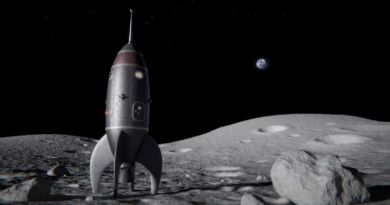Russia’s Luna 25 Mission Ends in Disappointment: Crash on the Moon’s Surface
In a recent and highly anticipated space mission, Russia’s Luna 25 spacecraft was poised for a historic landing on the Moon. Unfortunately, the mission took a dire turn, resulting in the spacecraft crashing onto the lunar surface. This unforeseen outcome has cast a spotlight on the incident, raising questions about the reasons behind the crash and the implications it holds for Russia’s space exploration endeavors.
The Ill-Fated Mission
Russia’s ambitious plan to send the Luna-25 spacecraft to the Moon encountered significant setbacks. The spacecraft, a part of the Luna-Glob program, was designed for lunar exploration, marking Russia’s first attempt to reach the Moon in nearly half a century. On August 20, 2023, the Luna-25 spacecraft encountered a tragic fate, veering off course and crashing onto the Moon’s surface.
The Critical Moment: Loss of Control
The critical moment leading to the crash occurred during a pivotal maneuver when the spacecraft was in the process of preparing for its lunar landing. At this juncture, a sudden and unexpected problem arose, causing the spacecraft to lose control and resulting in the loss of communication with mission control. The specifics of the technical glitch that triggered the catastrophic incident remain a subject of investigation.
Implications for International Cooperation
The crash of Luna 25 not only marked a setback for Russia’s lunar exploration aspirations but also raised concerns about the state of international collaboration in space endeavors. Tensions stemming from Russia’s actions in Ukraine have prompted doubts about the feasibility of collaborative efforts between Russia and Western nations in the realm of space exploration. Despite Russia’s desire to extend its participation in the International Space Station until 2028, the European Space Agency opted to distance itself from joint projects with Russia concerning lunar and Martian exploration.
Missed Opportunities and Global Landscape
Had the Luna-25 mission succeeded, it could have paved the way for an array of subsequent lunar expeditions by Russia. Presently, only Russia, the United States, and China have achieved successful lunar landings. India’s Chandrayaan-3 mission also seeks to explore the Moon’s southern pole. Luna 25’s crash thus stands as a reminder of the formidable challenges posed by space exploration and the unpredictable nature of venturing into the cosmos.
Conclusion: Lessons from Luna 25’s Crash
The unfortunate conclusion of Russia’s Luna 25 mission underscores the inherent risks and complexities of space exploration. The crash not only dashed Russia’s hopes of successful lunar exploration but also spotlighted the intricate geopolitical dynamics affecting international space cooperation. As the space community reflects on this incident, it serves as a poignant reminder of the pioneering spirit required to push the boundaries of human knowledge and the constant need to improve our understanding of the cosmos. Keep following Guest Blogging Pro to read more such top-trending news blogs.




